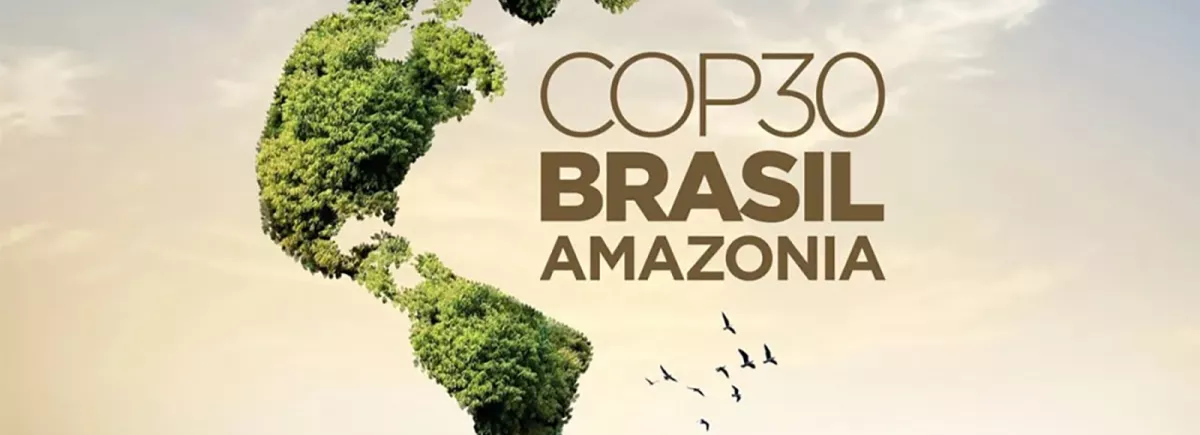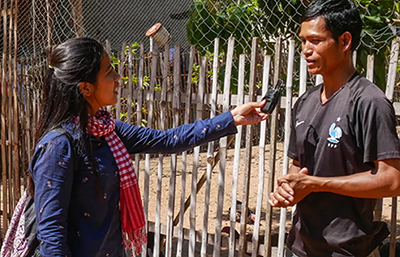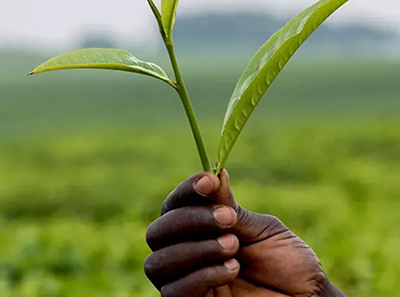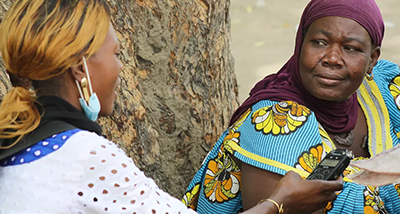
At COP30, CFI reaffirms its commitment to combating climate misinformation
CFI, the French media development agency, works to ensure that everyone has access to reliable and independent information. It combats misinformation and defends freedom of expression and freedom of the press by supporting media outlets, journalists and information providers around the world. Environmental journalism is one of its priorities, in a context of worsening climate misinformation.
As successive COP (Conferences of the Parties) climate conferences highlight the scale of the consequences of climate change for populations and territories, the climate emergency is becoming more urgent every day. In 2015, COP21, chaired by France, laid the foundations for a new international agreement applicable to all countries; in 2025, on the eve of COP 30, the situation remains alarming.
At the same time, climate misinformation is spreading rapidly all over the world, not only on social media but also in traditional media and even at the highest levels of government. According to Laurence Tubiana, academic and diplomat, former ambassador for the COP21 negotiations and currently CEO of the European Climate Foundation, “today, 10% of misinformation is allocated to climate change”.
In this context, CFI supports journalists around the world to enable them to fulfil their essential role of informing the public and acting as whistleblowers. Through its action, CFI guarantees the production of reliable, verified content that promotes the search for solutions and encourages civic engagement.
CFI’s flagship actions
CFI prioritises projects in the regions most affected by climate change, ensuring a tangible and rapid impact. The principle is clear: to educate journalists in the science, by putting them in contact with academic communities and members of civil society who are experts on these subjects, and showing them the realities on the ground for local populations. It also involves raising their awareness of citizen mobilisation and solutions journalism, so that the media can demystify the issues, inform and rally citizens in the face of environmental challenges.
In the Near and Middle East, the Qarib project, implemented by CFI, supported by the AFD and in partnership with France Médias Monde, is strengthening the media to encourage social cohesion, promote the inclusion of populations, particularly women, and foster public debate. Climate and environmental issues have a central place in this.
In this context, CFI has supported the work of 37 journalists in the region, who collectively produced 185 articles on COP27, COP28 and COP29, thereby helping to raise public awareness and strengthen regional dialogue on climate change, sustainability and environmental justice.
Hundreds of pieces by journalists have been published on this topic since the project was launched in 2020, including articles, videos and podcasts, all of which can be found on the qaribmedia.com website.

In Asia-Pacific, Terra Asia is strengthening the media’s role in making environmental issues understandable and combating climate misinformation. Guided reporting can thus demystify the scientific work and local realities that exist, ensuring this is shared with as many people as possible.
Terra Asia in a nutshell:
• Over 500 people trained and sensitised;
• Carried out in Indonesia, the Philippines, Papua New Guinea, and Fiji;
• A CFI project, in partnership with the Asia-Pacific Institute for Broadcasting Development (AIBD) and supported by the French Development Agency (AFD).

In Southeast Asia, the Media for One health project is strengthening the production of journalism content that promotes the prevention of environment-related health crises by making the “One Health” approach more understandable.
Media for One health in a nutshell:
• Training of 50 journalists;
• 200 people sensitised;
• 60 pieces of journalism content generated;
• Carried out in Cambodia, Laos, the Philippines and Vietnam;
• A CFI project supported by the Minister for Europe and Foreign Affairs (MEAE)

In West Africa, the Terra Africa project aims to promote the understanding and assimilation of climate issues and encourage active environmental action by citizens.
Terra Africa in a nutshell:
• Training of 60 Journalists and managers of 20 media outlets;
• Participation in two climate COPs;
• Cape Verde, Côte d’Ivoire, Guinea, Guinea-Bissau and Senegal;
• The journalist Ariana Vaz, winner of the Cape Verde National Journalism Award 2024;
• A CFI project, in partnership with RFI, supported by the MEAE

In West and Central Africa, the Afri’Kibaaru 2 project aims to promote a journalism that is in tune with local populations and committed to the planet by training media outlets to produce content in local languages on climate change, its effects and adaptation solutions.
Afri’Kibaaru 2 in a nutshell:
• Training of specialist journalists, over a third of whom are women;
• 46 pieces of journalism content produced, 13 of them focused on the fight against misinformation;
• Carried out in Cameroon, Côte d’Ivoire, Guinea and Senegal;
• A CFI project carried out in partnership with France Médias Monde and supported by the French Development Agency (AFD).
In the face of rising climate misinformation, CFI reaffirms that a free, trained and responsible media is essential to preserving a liveable planet for all.


